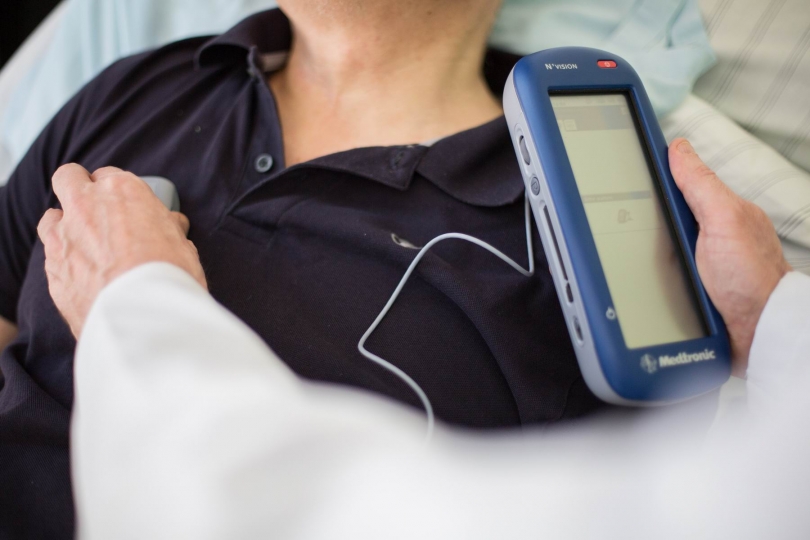Batteries for the brain

A pacemaker implant gives new hope to Parkinson's sufferers
Helmut Schroeder was 49 when he began noticing a loss of balance and an inability to slow his movements.
He crashed while attempting to turn right while skiing. He even started to experience difficulty doing everyday tasks such as opening a door.
A hospital visit revealed the traumatic news that the qualified psychiatrist was suffering the early onset of Parkinson’s disease, an incurable degenerative disorder that attacks the body’s motor system.
Now 67, Schroeder has since written a book in German about living with the disease, which he describes as a “roller-coaster ride for the hardcore”, and is now embarking on a new phase in his battle with Parkinson’s, thanks to a brain-implant procedure that is now coming into wider use.
Schroeder received the deep brain pacemaker at the Goettingen University Clinic 18 months ago. The US-made device sends tiny jolts of electricity through neurons, which helps control his tremors, rigidity and other kinetic symptoms. Schroeder’s speech has also improved and he now requires less than half the medication he used to take prior to the operation.
“I can now carry out all the movements I want. I can even ride a bike and again enjoy the old hobbies I used to love,” he says.
“My wife used to have to care for me all the time, but is now virtually unemployed.”
The operation has given Schroeder a new lease of life, but the decision to go under a surgeon’s scalpel was still a daunting one.
Two battery-operated electrodes were implanted in his brain to target the thalamus, subthalamic nucleus, and a portion of the globus pallidus. These areas of the brain control movement and the neurostimulator, which is similar to a heart pacemaker, blocks the abnormal nerve signals that cause tremor and other Parkinson’s symptoms.
The five-hour operation is normally carried out under local anaesthetic, since the patient has to assist in the procedure so that the electrodes are positioned correctly.
“The surgery is very unpleasant,” says Schroeder.
The electrodes are inserted through a small opening in the skull and implanted in the brain. An insulated wire is then passed under the skin of the head, neck, and shoulder, and connects the electrodes to the neurostimulator, which is implanted in the stomach or chest area.
The operation costs in the region of 30,000 euros (Bt1,200,000) and it can take up to two weeks until the neurostimulator is correctly calibrated.
The procedure is used only for patients whose symptoms can no longer be adequately controlled with medications.
Previously, neurostimulators were on average only implanted 12 to 14 years after diagnosis, but this delay has since been reduced to seven years, says Alfons Schnitzler, head of Institute of Clinical Neuroscience and Medical Psychology at Dusseldorf University Clinic.
Fellow neurology professor Lars Timmermann from Cologne University Clinic believes that in certain cases, implants are ideal for patients under the age of 61.
However, the procedure is not suited to all Parkinson’s sufferers and numerous tests have to be carried out first.
“It’s not a miracle cure, but it is a great option for some patients,” says Timmermann.
Patients suffering from strong tremors can enjoy coordination again within seconds, once the pacemaker is switched on.
“We have seen dramatic therapeutic effects, but still do not know to this day how it works in detail,” admits Schnitzler.
Technology is improving by the day and adaptive deep brain stimulation is the next step to more specifically identify the precise brain target that will be stimulated, thus reducing the effect on healthy brain area.
Schnitzler believes the technology will be in place within three years, meaning the brain is no longer under 24-hour stimulation but instead the brain’s electrical signals are only blocked when necessary.
The surgery can result in cranial haemorrhaging and even induce acute or manic depressive episodes, but Schroeder has noticed no side effects since undergoing his operation.
“I can play chess again and have even entered competitions again,” he says.
“People should realise, however, that this operation is not a cure for Parkinson’s, but simply slows its progress by years.”
RELATED





